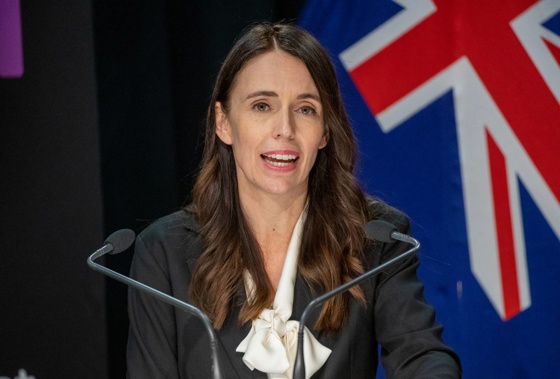
Prime Minister Jacinda Ardern travelled to Palmerston North with $44 million and a message for the councils gathering there for the Local Government New Zealand's (LGNZ) conference: the government is listening, but it's not changing its mind.
Three Waters reform has split New Zealand's 67 councils, with 31 joining a splinter group opposed to the reforms and one council seceding from LGNZ completely.
Speaking to the conference, Ardern offered a message of sympathy, noting that she and the government empathised with the stress and pressure put on councils during the pandemic.
"The past three years have been tough," Ardern said, noting both councils and government served "communities who are fatigued and with teams who have given tirelessly of themselves for more than two years now".
Ardern said councils and local government had "a lot on [their] plates" in the form of the Government's Resource Management Act reforms, its recently-passed urban density reforms, as well as changes the Government was making to waste and climate change.
Ardern said the Government's Three Waters reforms, which will take water assets like pipes and reservoirs from councils and roll them into four enormous water entities that councils will jointly own and co-govern with iwi, will not be substantially altered.
"It has to be done," Ardern said, "and by taking the leap, there are opportunities to be found".
Legislation that would create the four new entities is now before Parliament. Supporters and opponents of the reforms are currently trying lobbying their backers to submit on the reforms. Last week, the Labour Party used its campaign mailing list to encourage supporters to submit, on Wednesday, the National Party did the same, encouraging its supporters to submit against the proposals.
Regardless of what submitters said of the proposals, Ardern said the Government will not budge from the major planks of the reforms like amalgamating councils' water services into the four entities, or the number of entities themselves.
"The advice on the number of entities has been quite clear. There's quite a tight ring around if we want to achieve the benefits of the economy of scale and reducing the potential burden on ratepayers that the number of entities is a pretty important part of that," Ardern said.
She said the Government had already made changes to controversial governance and ownership aspects of the reforms, after a prior consultation and working group.
These changes were minor and did not fundamentally alter the co-governance aspect of the reforms that generated the most controversy. The entities will be governed by boards that are ultimately selected jointly by councils and mana whenua.
She said the Government was open to feedback on aspects of the reforms like the economic regulator.
To sweeten the deal, the Government announced this week it would offer councils a share of $44m to help transition to the new model. This was on top of the $2.5 billion offered to councils last year.
Proving the Government was listening and acting on at least some local government concerns, Ardern highlighted a law change that will give local government candidates the right to not put their address on election advertising - some candidates had raised concerns it made them feel unsafe.
"We heard you, and we changed the law. The current environment is one in which it is hard to be a politician," Ardern said.
As if to prove her point, Ardern had to be snuck into the conference thanks to a small crowd of anti-vaccination and anti-three waters bearing some threatening placards reminiscent of the Parliament occupation earlier in the year.
Take your Radio, Podcasts and Music with you









